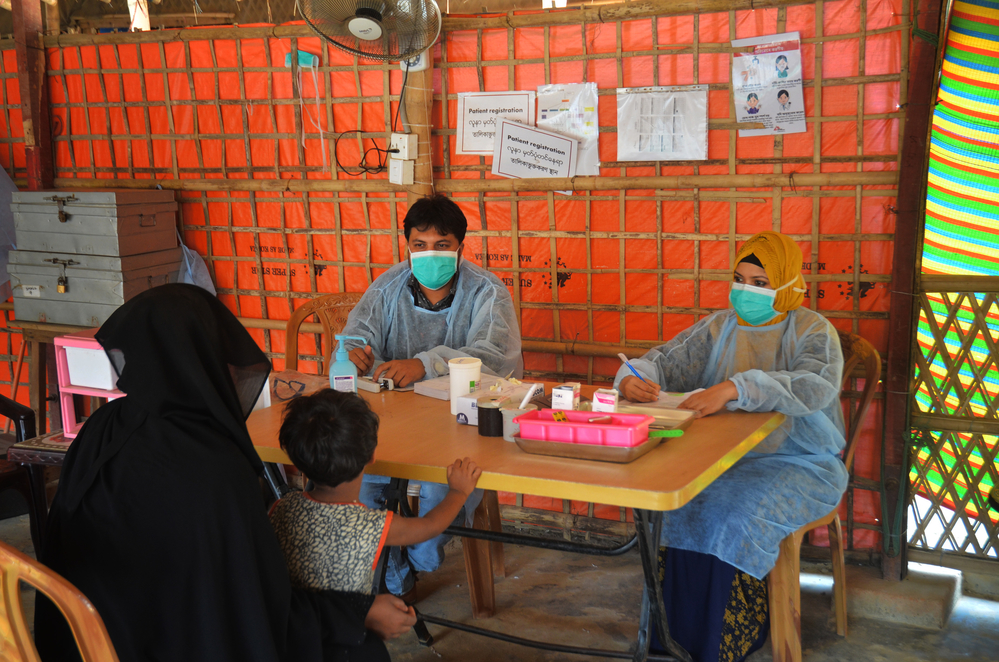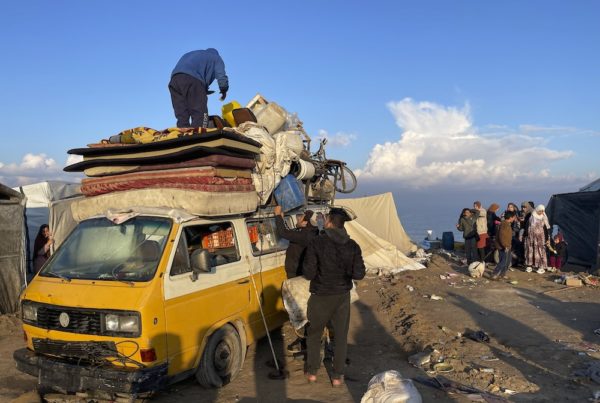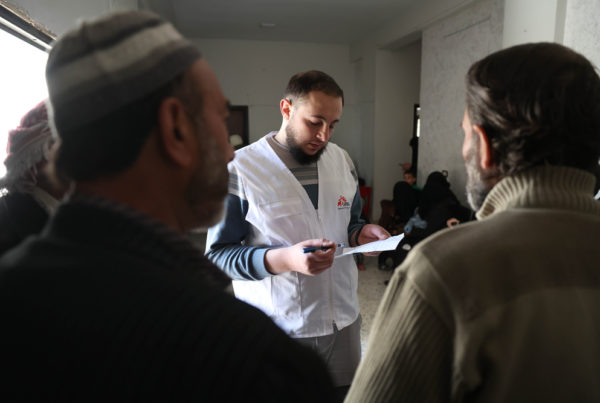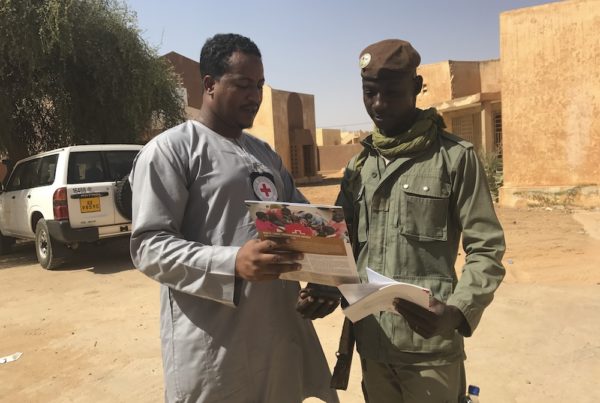
To assist and protect people affected by crises, you probably often find yourself discussing, coordinating, and reaching agreements with different people and groups.
As you do your best to move your operation forward, you may encounter roadblocks—sometimes quite literally—and might need to reach compromises.
In other words, negotiation skills are crucial for humanitarian professionals, and learning some practical negotiation tools may positively impact your organisation’s work.
In the paragraphs below, we’ll guide you through a step-by-step process on how to plan a humanitarian negotiation following the CCHN methodology—called the “Naivasha grid.”
You will follow a real-life negotiation scenario of a humanitarian organisation carrying out a vaccination campaign and encountering deadlocks along the way. Keep reading to learn some practical negotiation tips.
Setting the scene
Imagine you are a professional working for a humanitarian organisation called Medical Help International (MHI) that specialises in vaccination campaigns.
The World Health Organisation (WHO) recently reported a measles outbreak in the northeast region of country A. The country’s government has tried to respond to the crisis but has been unsuccessful because it lacks a solid health infrastructure.
On top of this, conflict broke out in the country, forcing many families to relocate to the region where the outbreak is taking place. Tensions have flared up between the displaced people and the host communities, who believe the new arrivals have brought the disease into the area.
To support the government’s efforts in curbing the outbreak, your organisation is planning to roll out a mass vaccination campaign in the affected region.
You know your campaign will need to be a coordinated effort between the Government and local health authorities of country A, host communities and displaced families. It will be impossible for your organisation to operate in the region and lead a successful campaign against the outbreak unless you build a relationship with these groups and gain their trust.
But where do you even start navigating this situation? How do you make sure you can find a compromise, despite everyone’s concerns?
1. Start by collecting information and analysing the facts.
Before putting anything into action, it’s important to get your facts straight.
You have confirmed vaccination needs are real and urgent because different trustworthy sources have reported a measles outbreak in the northeast of country A.
Your team also collected information stating that the Ministry of Health of country A launched a measles vaccination programme some months ago, but it falls short of WHO standards. The ministry has done a general vaccine distribution across the country. However, according to the WHO, vaccines should be distributed to communities with the highest infection rate first to stop an outbreak.
Additionally, the Government announced in a press release that all nationals will have equal access to vaccination. Yet, the Government’s response to the outbreak in the northeast region has been close to non-existent. Local health authorities lack the capacity and resources to conduct a mass vaccination campaign.
Lastly, it appears that there are more cases reported among displaced families. Their vaccination rates are lower, which makes them more vulnerable to contracting the disease. Yet, local communities feel they are more entitled than displaced families to receive vaccines first, and tensions between the two groups have been growing since the outbreak started.
Country A clearly needs your organisation’s support, but after being under a harsh colonial regime for several decades, the current government has become very cautious concerning the presence of foreign organisations in the country. Getting the right operating authorisations, establishing your presence and gaining trust will be clear challenges for your organisation.
Here’s how to collect information and verify your sources by using our context analysis tool.
See this in French by clicking here.
2. Identify, engage with, and influence the right people.
After verifying your facts, you need to identify the right people, groups or institutions to address.
Gaining the Ministry of Health and local authorities’ trust will be key to implementing your campaign. MHI is a foreign organisation coming into the affected region for the first time; without the right authorisations, you won’t be able to operate in country A.
You will also need to work with local health professionals. The displaced families, who are most affected by this outbreak, are reluctant to engage with an international organisation. Cooperating with the local health structures will give your organisation legitimacy in the eyes of the local residents and help them trust you.
Relations between host communities and displaced families are tense. You know that community leaders have the power to influence their community’s opinion. Building a solid relationship with them and involving them in your work will help establish an atmosphere of trust and collaboration. Community leaders will play a major role in building a positive perception of your organisation’s activities in the region.
Click through the case study below to see how to apply our network mapping tool to identify key actors in your negotiation.
See this in French by clicking here.
3. Define your own position and that of your counterpart.
Next, you should aim to find common ground—in other words, a set of principles and facts upon which both your organisation and your counterpart agree. To do this, you’ll need to understand your counterparts’ position and the reasoning, motives and values behind it.
You know that the Ministry of Health and local health authorities are on board with your campaign. However, they have provided limited authorisation to work in the country and they have been especially reluctant of collaborating with international staff. Although they haven’t explicitly said so, your sources shared that the Government is weary of foreign organisations who may have a link with their former colonial power.
Additionally, the Ministry of Health follows national standards that differ from those established by the WHO and would like your organisation to abide by them. The Ministry would also like to have your organisation’s support with their regular vaccination programme.
Community leaders worry that if displaced families are given priority in the first round of vaccination, tensions with the host community will rise. Leaders have also demanded that MHI hires members from their community to support the campaign. You realise the leaders insist on this position because they are concerned with social order and with the livelihoods of their community.
From your side, the negotiation objective is clear: getting immediate access to the affected area and starting the vaccination campaign.
Your organisation usually operates by bringing experienced technical staff of different nationalities to train local health professionals. You worry that working with staff members from country A’s former colonial power might risk your relationship with the Ministry of Health. Together with your team, you decide you are willing to compromise and avoid recruiting staff from that one country in this situation.
Because your organisation’s mandate clearly states that MHI’s mission is to respond to health emergencies only when the local health system is unable to respond, you know that you won’t be able to support the Ministry of Health’s request with its regular vaccination programme.
Your organisation can’t compromise on medical standards either, so you will have to be firm about following the protocols established by the WHO that have proven effective to curb measles outbreaks.
As to the population included in the first round of vaccination, your team will have to prioritise the most affected based on the finding of your needs assessment. To implement this strategy, MHI will have to hire daily workers; you are open to recruiting people from the local community as proposed by the community leaders, but only provided they have the necessary skills.
Learn how to keep track of possible shared positions and establish the “common shared space” by clicking through the slides below.
See this in French by clicking here.
4. Reconcile different interests.
In an ideal world, your organisation aims to:
- Get authorisation as soon as possible to start operating in the northeast of country A to carry out mass vaccination campaigns against measles.
- Follow WHO vaccination standards and target the most affected regions first, then expand to other affected areas.
- Identify the people who will be vaccinated first through an assessment that follows technical standard operating procedures and prioritise according to need.
- Collaborate with the local health structures and staff for the emergency response only and hire daily workers according to their skills.
On the other hand, the Ministry of Health, community leaders and displaced families aim to:
- Tightly vet your activities and staff, especially nationals from the former colonial power present in country A.
- Give priority to the local community and vaccinate them first, irrespective of actual needs assessed by your organisation.
- Recruit daily workers from the local community to help implement the vaccination campaign without your organisation’s input.
- Continue to receive your organisation’s support for the national vaccination programme.
To respond to some of your counterpart’s requests, you’ll probably need to seek your management’s approval. For example, you may have to discuss internally whether you can agree to include local communities in the initial rounds of vaccination. We call these positions our “bottom line”: the boundaries which we voluntarily decide not to cross.
Other compromises may not be feasible at all, because they go against your organisation’s mandate and principles. We call these our “red lines”. For instance:
- Your organisation cannot support the Ministry of Health with its regular vaccination programmes since your organisation only operates in the context of emergencies.
- Your organisation must follow the WHO standards to ensure the effectiveness and professionalism of the response without risking its reputation.
After analysing the principles or actions on which you and your counterpart are in agreement, you call a meeting with your team members and come up with a proposal for a shared position which may be acceptable on both sides:
- Your organisation will bring international staff into the country but decides it won’t hire professionals from the former colonial power.
- Your team agrees to hire daily workers from the community, but they will have to go through a rigorous selection process. Your organisation is open to the community leaders’ input.
Use our tool below to learn how to design possible negotiation outcomes and establish your organisation’s boundaries.
See this in French by clicking here.
5. Build and maintain a relationship of trust.
Last, but not least, you will need to build a relationship of trust with the groups and institutions involved to guarantee the sustainability of your operation. This requires that you and your organisation are consistent in your position and approach, making your organisation predictable and reliable.
There are three pillars that will help you build a long-term relationship and guarantee an effective humanitarian response:
- Presenting clear messages. Clear communication means presenting straightforward information to your counterparts and avoiding ambiguity or misunderstandings. This can also mean “unpacking” humanitarian terms or concepts for those who are unfamiliar with them.
- Being open to adapting your position. Rigid and inflexible negotiators are unlikely to reach a “win-win” outcome in the negotiation process. The counterparts will more easily invest in negotiation processes when they feel like they have some influence on them. A trustful organisation brings empathy and creativity to the table, and a capacity to meet the other halfway after having established common ground.
- Remaining predictable in a changing environment. People trust those whose behaviours and attitudes they can predict. In humanitarian contexts, which are by nature chaotic, people or organisations who constantly change their mind, behaviour and positions appear much less believable during the negotiation process. Predictability helps preserve a shared space, language and protocol in which to find a fair compromise between competing interests.
Use the chart below to dig deeper into how to build trust with your counterpart.
See this in French by clicking here.
As you can see, knowing how to negotiate is crucial for humanitarian professionals.
Check out our other negotiation resources, including a second case study inspired from a real humanitarian negotiation to get access to a refugee camp, where you will learn how to apply the Naivasha grid to plan and manage a humanitarian negotiation from A to Z.
Curious about the best negotiation practices in the humanitarian field? Subscribe to our newsletter to get them straight in your inbox!



